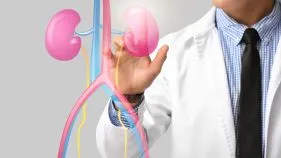Kidney stones are small, hard deposits that form inside your kidneys when certain minerals and salts in the urine become concentrated. These stones can cause severe pain, discomfort, and urinary complications. Fortunately, kidney stone treatment options are highly effective and vary based on the size, type, and severity of the stones.
In this blog, we’ll explore everything you need to know about kidney stone treatment—from natural remedies and medications to advanced surgical procedures. We’ll also cover prevention tips to help you avoid recurrent stones in the future.
What Are Kidney Stones?
Kidney stones, or renal calculi, are crystalline mineral deposits that form in the kidneys and may move into the urinary tract. Common types include:
Calcium stones (most common)
Uric acid stones
Struvite stones (from infections)
Cystine stones (genetic disorder)
Symptoms of Kidney Stones
Kidney stones can go unnoticed until they start moving. Common symptoms include:
Sharp pain in the lower back or abdomen
Pain during urination
Blood in urine
Frequent or urgent urination
Nausea or vomiting
Fever and chills (if infection is present)
Kidney Stone Treatment Options
1. Home Remedies and Hydration
For small stones (less than 5mm), increasing fluid intake (2–3 liters a day) can help flush out the stone naturally. Other remedies include:
Lemon water: Contains citrate, which may help dissolve calcium stones.
Apple cider vinegar: Some believe it helps break down small stones.
Pain relief medications: Such as ibuprofen or acetaminophen.
⚠️ Always consult a doctor before trying home remedies.
2. Medical Therapy
Doctors may prescribe medications such as:
Alpha blockers (e.g., tamsulosin) to relax ureter muscles and ease stone passage.
Potassium citrate to dissolve certain types of stones.
Allopurinol for uric acid stones.
Antibiotics if an infection is present.
3. Minimally Invasive Surgical Treatments
If the stone is large or causing complications, surgery may be needed:
a. Extracorporeal Shock Wave Lithotripsy (ESWL)
Non-invasive procedure using sound waves to break stones into small fragments.
Ideal for medium-sized stones.
b. Ureteroscopy
A thin scope is inserted through the urethra to break or remove stones from the ureter or kidney.
No incisions required.
c. Percutaneous Nephrolithotomy (PCNL)
For large or complex stones.
Involves a small incision in the back to access and remove the stone.
d. Laser Lithotripsy
A laser is used via ureteroscopy to fragment the stone.
Fast recovery and minimal discomfort.
Preventing Kidney Stones
Prevention is key to avoid recurrence. Here’s how:
Drink plenty of water daily (at least 8–10 glasses)
Limit sodium, sugar, and animal protein intake
Include more citrus fruits like lemons and oranges
Avoid excessive intake of oxalate-rich foods (spinach, chocolate, nuts)
Follow doctor-prescribed medications for underlying conditions
Expert Kidney Stone Treatment at Prabhakar Bhurke Clinic
At Prabhakar Bhurke Nephrology, Urology, and Gynaecology Fertility Clinic, we specialize in the diagnosis, treatment, and prevention of kidney stones using the latest technology and compassionate care.
Dr. Hitesh Jain, our expert Urologist and Uro Surgeon, has a particular focus on kidney stone treatment, prostate conditions, and urological cancers. With access to advanced diagnostic tools and minimally invasive surgical techniques, we ensure fast relief and long-term prevention.
We offer clinic consultations, home visits, and video consultations at our centers in Lokhandwala (Andheri West) and Borivali West, Mumbai.
Say Goodbye to Kidney Stone Pain—Book Your Consultation Today
Don’t wait for the pain to worsen. Our experienced team is ready to guide you through the most effective kidney stone treatment plan tailored to your needs.




